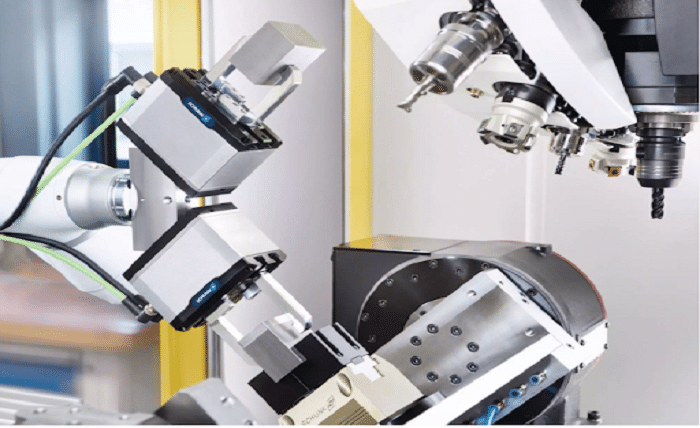In the realm of academic and scientific research, Technology Transfer Offices (TTOs) play a pivotal role in bridging the gap between innovative ideas and their practical applications. This blog post delves into the main function of a TTO with respect to collaborative research, exploring how these offices facilitate the transfer of knowledge, protect intellectual property, and foster partnerships that drive technological advancements.
What is a Technology Transfer Office (TTO)?
A Technology Transfer Office (TTO) is a specialized department within universities, research institutions, or companies that manages the commercialization of innovations and intellectual property (IP). The primary goal of a TTO is to transfer technology from the research environment to the marketplace, ensuring that inventions and discoveries benefit society while generating revenue for the institution.
The Role of TTOs in Collaborative Research
The main function of a TTO in collaborative research is to facilitate the exchange of knowledge and technology between researchers and external partners. This involves several key activities, including negotiating agreements, protecting intellectual property, and supporting commercialization efforts. TTOs ensure that collaborations are productive, legally compliant, and mutually beneficial.
Facilitating Knowledge Exchange
One of the primary functions of a TTO is to facilitate knowledge exchange between researchers and external entities, such as industry partners, government agencies, and other academic institutions. This includes organizing workshops, seminars, and networking events that bring together stakeholders to discuss potential collaborations and share insights.
Intellectual Property Protection
Protecting intellectual property is a crucial function of TTOs. They help researchers secure patents, copyrights, and trademarks for their inventions and discoveries. This protection is essential for attracting industry partners and investors, as it ensures that the intellectual property is legally safeguarded and that the inventors retain control over their innovations.
Negotiating Collaborative Agreements
TTOs are responsible for negotiating and drafting collaborative research agreements, including partnership agreements, licensing deals, and sponsored research contracts. These agreements outline the terms and conditions of the collaboration, including the allocation of intellectual property rights, revenue sharing, and responsibilities of each party involved.
Supporting Commercialization Efforts
A significant function of TTOs is to support the commercialization of research outcomes. This involves identifying market opportunities, developing business plans, and connecting researchers with potential investors and industry partners. TTOs provide the necessary resources and expertise to help translate academic research into viable products and services.
Managing Partnerships and Alliances
TTOs play a critical role in managing partnerships and alliances between research institutions and external organizations. This includes maintaining relationships with existing partners, identifying new collaboration opportunities, and ensuring that all parties adhere to the terms of the agreements. Effective partnership management is essential for the success of collaborative research projects.
Ensuring Compliance with Regulations
Compliance with legal and regulatory requirements is another key responsibility of TTOs. They ensure that all collaborative research activities comply with institutional policies, funding agency guidelines, and applicable laws. This includes managing conflict of interest issues, adhering to ethical standards, and ensuring the proper use of research funds.
Promoting Innovation and Entrepreneurship
TTOs are instrumental in promoting a culture of innovation and entrepreneurship within research institutions. They provide training and support for researchers interested in starting their own companies or commercializing their inventions. This includes offering mentorship, providing access to incubators and accelerators, and facilitating connections with the entrepreneurial ecosystem.
Monitoring and Evaluating Outcomes
Monitoring and evaluating the outcomes of collaborative research projects is an important function of TTOs. They track the progress of projects, assess the impact of collaborations, and measure the return on investment. This information is used to improve future collaborations and ensure that the research institution’s goals are being met.
Conclusion
Technology Transfer Offices are essential in the collaborative research landscape, providing the necessary support to bridge the gap between academic discoveries and real-world applications. By facilitating knowledge exchange, protecting intellectual property, negotiating agreements, supporting commercialization efforts, and ensuring compliance, TTOs play a crucial role in driving innovation and fostering productive partnerships. Understanding the main function of a TTO in collaborative research highlights its importance in the advancement of technology and its impact on society.
FAQ
1. What is the main function of a Technology Transfer Office in collaborative research?
The main function of a Technology Transfer Office in collaborative research is to facilitate the transfer of knowledge and technology between researchers and external partners, ensuring productive and legally compliant collaborations.
2. How do TTOs protect intellectual property?
TTOs protect intellectual property by helping researchers secure patents, copyrights, and trademarks for their inventions and discoveries, ensuring legal protection and control over their innovations.
3. What role do TTOs play in commercialization efforts?
TTOs support commercialization efforts by identifying market opportunities, developing business plans, and connecting researchers with potential investors and industry partners to translate academic research into viable products and services.
4. How do TTOs manage partnerships and alliances?
TTOs manage partnerships and alliances by maintaining relationships with existing partners, identifying new collaboration opportunities, and ensuring all parties adhere to the terms of collaborative research agreements.
5. Why is compliance with regulations important for TTOs?
Compliance with regulations is important for TTOs to ensure that all collaborative research activities adhere to institutional policies, funding agency guidelines, and applicable laws, including managing conflict of interest issues and ethical standards.





